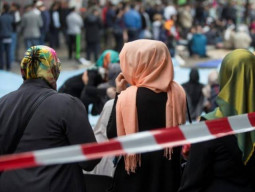
"There's less here than meets the eye," Holbrooke, the special representative for Afghanistan and Pakistan, told reporters after a trip to Kabul. "There is no indication at this point that the Taliban leadership wishes to change its course," Holbrooke said.
Afghan President Hamid Karzai has set up a council to engage in dialogue with the Taliban, hoping to bring about an end to more than nine years of war since the United States sent in forces following the September 11 attacks.
Holbrooke said he met in Afghanistan with senior Council member Mahsoom Stanikzai who told him that more Taliban "were now in contact because they were feeling the pressure." But Holbrooke said that the Taliban who were reaching out were primarily local forces and did not share the ideology of the movement's elusive leader Mullah Omar.
"A lot of these groups, if you know the history of Afghanistan, you will know were not hard-core ideological Taliban. They're independent groups who defend their local valley and move back and forth," Holbrooke said. "I know the difference between talks, negotiations, talks about talks, and we're not even at that stage," said Holbrooke, who brokered the 1995 Dayton accords that ended Bosnia's bloody ethnic war.
Holbrooke said the United States supported reintegration of Taliban fighters so long as they meet red lines, including renouncing al Qaeda and agreeing to participate peacefully in the political process.
President Barack Obama has tripled the number of US troops in Afghanistan but hopes to begin scaling them back in mid-2011 depending on conditions on the ground.



1731655243-0/BeFunky-collage-(61)1731655243-0-165x106.webp)

1731658159-0/BeFunk_§_]_-(19)1731658159-0.jpg)
1731653601-0/Copy-of-Untitled-(43)1731653601-0-270x192.webp)


1731650013-0/Copy-of-Untitled-(41)1731650013-0-270x192.webp)







COMMENTS
Comments are moderated and generally will be posted if they are on-topic and not abusive.
For more information, please see our Comments FAQ